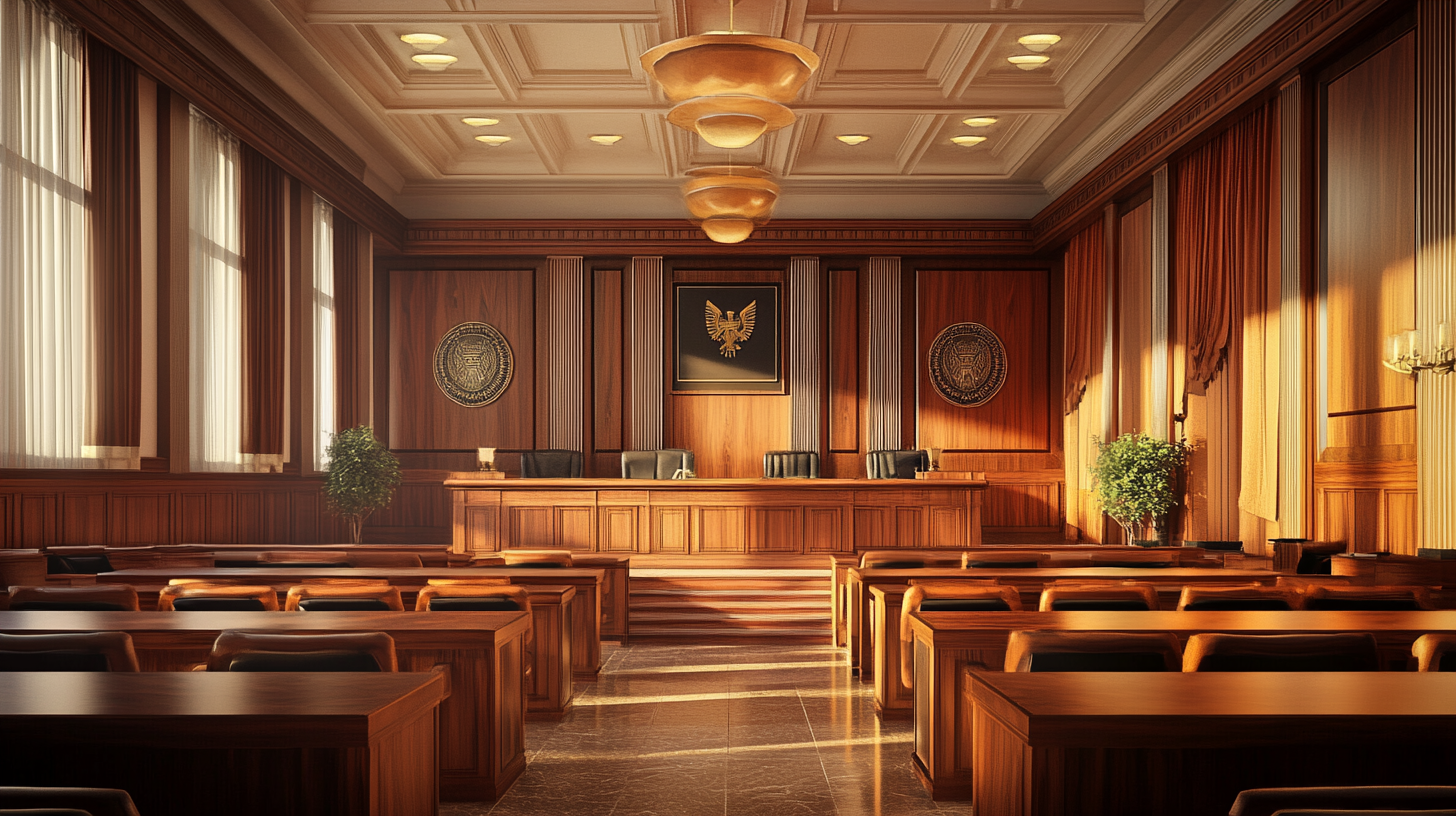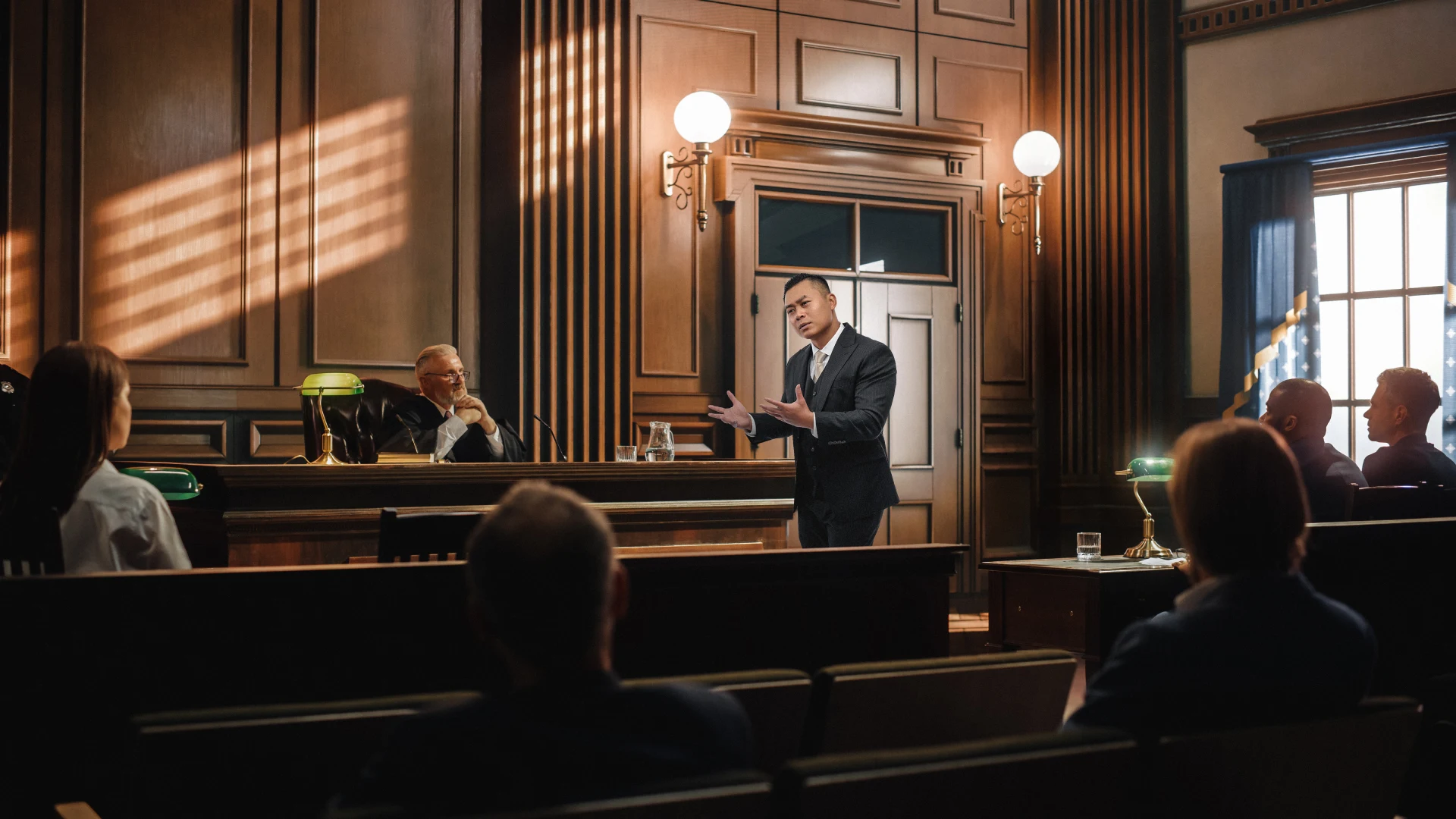Navigating the California Criminal Justice System: An Insider’s Guide
Facing criminal charges in California can feel like stepping into a labyrinth without a map. The stakes are incredibly high, and the process is complex and often intimidating. You’re not just up against a single prosecutor; you’re facing the full power of the state’s legal system. It’s a system with its own language, rules, and unwritten customs.
This is where a unique kind of legal representation becomes invaluable. At The Win Law Firm, our approach is different. Our founder, Kenny Nguyen, is a former prosecutor. This isn’t just a detail on a resume; it’s a strategic advantage that can redefine the trajectory of your case. We see the prosecution’s playbook because we used to write it. We understand their priorities, their pressure points, and their typical strategies. This insider knowledge allows us to anticipate their moves and build a more robust, proactive defense for you.
The Criminal Justice Journey: A Step-by-Step Overview
Understanding the process is the first step toward regaining control. While every case is unique, the criminal justice process in California generally follows a series of distinct stages. Knowing what to expect is crucial. It empowers you to make informed decisions and work effectively with your legal counsel.
Step 1: The Initial Investigation and Arrest
The process often begins before charges are even filed. Law enforcement, whether police or a sheriff’s department, conducts an investigation. They gather evidence, interview witnesses, and build their case against you. This stage is critically important because it lays the foundation for everything that follows.
An arrest can happen in two ways: with or without a warrant. In either case, law enforcement must have probable cause, a reasonable belief that you committed a crime. After an arrest, you’ll be taken into custody and booked. During this time, they’ll take your fingerprints, photograph you, and record your personal information.

Step 2: The Filing of Charges and the Arraignment
Once the investigation is complete, the case is presented to a prosecuting agency, the District Attorney’s or City Attorney’s office. A prosecutor reviews the evidence and decides whether to file formal criminal charges. It’s a common misconception that a victim “presses charges;” in reality, this decision rests solely with the prosecutor.
The arraignment is your first formal court appearance. At this hearing, the judge will read the charges against you and explain your constitutional rights. You will then be asked to enter a plea: guilty, not guilty, or no contest. It’s almost always in your best interest to plead “not guilty” at this stage and have your attorney request a continuance to allow time to review the evidence. This is also when bail may be set.
Step 3: The Pretrial Phase and Discovery
The pretrial phase is often the longest and most critical part of the process. This is where most of the legal maneuvering takes place. During discovery, the prosecution and your defense attorney exchange evidence. Your attorney will meticulously review every piece of information, including police reports, witness statements, and forensic test results.
This is where the value of a former prosecutor truly shines. We know what to look for and what questions to ask. We can identify weaknesses in the prosecution’s evidence that a less experienced attorney might miss. We will also file motions—formal requests to the court—to suppress illegally obtained evidence or dismiss charges if the legal grounds exist.
Step 4: The Preliminary Hearing (for Felony Cases)
If you are charged with a felony, a preliminary hearing is held before a judge. This hearing is not a trial; its purpose is for the judge to determine if there is enough evidence to believe that a crime was committed and that you are the person who committed it. In other words, the judge is looking for probable cause.
If the judge finds probable cause, the case proceeds to a second arraignment and then toward trial. If they don’t, the charges may be dismissed. This hearing is a powerful opportunity for your defense attorney to challenge the prosecution’s case early on and potentially secure a dismissal. It’s an opportunity we take very seriously.
Step 5: The Trial
If no plea agreement is reached and the case is not dismissed, it will proceed to trial. You have the right to a jury trial for any misdemeanor or felony charge. During the trial, both the prosecution and the defense will present their cases, call and cross-examine witnesses, and present evidence.
The burden is on the prosecutor to prove your guilt beyond a reasonable doubt, the highest standard in American law. Your defense attorney’s job is to create and reinforce that doubt. The trial is the ultimate test of your attorney’s skill and preparation, and our firm’s trial readiness is a key characteristic that sets us apart. We have experience in the courtroom, and we are not afraid to use it.
Step 6: Sentencing
If you are found guilty at trial or enter a guilty plea, the next step is sentencing. At this hearing, the judge will determine the punishment. This can range from fines and probation to incarceration. Your attorney will present mitigating circumstances, factors that could lead to a lighter sentence, and argue for the most lenient possible outcome.
This is another area where our firm’s experience is vital. We understand what arguments resonate with judges and how to present your case in the most favorable light. We fight for alternative sentencing options, such as diversion programs, probation, or drug treatment, whenever possible.

The Power of a Former Prosecutor’s Perspective
Why does having a former prosecutor on your side make such a difference? It all comes down to leverage and foresight. We’ve been in the meetings where prosecutors discuss their strategies and prioritize their cases. We know which evidence they rely on most and which witnesses are weakest. We also know what they’re truly looking for in a plea bargain and how to negotiate from a position of strength.
An attorney with this background can:
- Anticipate the Prosecution’s Strategy: We can predict their next move and build a defense that counters their plan before it’s even executed.
- Uncover Weaknesses: We know where to look for procedural errors, constitutional violations, and evidentiary flaws that can weaken the state’s case.
- Negotiate More Effectively: We speak the same language as prosecutors. This allows us to negotiate better plea deals, or even dismissals, by highlighting the weaknesses we’ve identified.
- Provide a Realistic Assessment: We can give you an honest and accurate evaluation of your case, helping you understand the potential outcomes without sugar-coating the reality.
This isn’t about playing games; it’s about being prepared. It’s about leveling the playing field and ensuring your rights are protected at every turn. When you hire an attorney with this experience, you’re not just getting a lawyer; you’re getting an expert guide who knows the path and can lead you through the wilderness of the legal system.
A Proactive Defense: Our Philosophy
At The Win Law Firm, we believe the best defense is a proactive one. We don’t wait for the prosecution to make a move. We immediately begin our own thorough investigation, gathering evidence, and preparing our arguments. We will review every detail of your arrest and detention to ensure your Fourth, Fifth, and Sixth Amendment rights were respected.
We’ll explore all possible avenues to challenge the case, from filing motions to suppress evidence to highlighting inconsistencies in witness testimonies. Our goal is to create as much reasonable doubt as possible, whether in a plea negotiation or in the courtroom. We are dedicated to fighting tirelessly for you and achieving the best possible outcome, just as we have for many other clients.
Your Future Is Too Important to Leave to Chance
The consequences of a criminal conviction can be life-altering. It can affect your job, your housing, your relationships, and your fundamental freedoms. Don’t wait until it’s too late to get the legal help you need. The moment you are under investigation or have been arrested, you need a powerful advocate in your corner.
We’re here to be that advocate. We will stand by you, fight for your rights, and guide you through every step of the legal process. With our insider’s knowledge and unwavering dedication, we can help you navigate this challenging time with confidence. Your case is our most important case, and we will treat it with the seriousness and urgency it deserves.
If you or a loved one is facing criminal charges in California, don’t face the legal system alone. Contact The Win Law Firm today for a confidential consultation to discuss your case. Our unique insight as a former prosecutor gives you a powerful advantage. Let us put our experience to work for you.
Disclaimer: This blog post is for informational purposes only and does not constitute legal advice. Always consult a licensed attorney for guidance specific to your case.
FAQ Section
Q: What is the first thing I should do if I am arrested in California?
A: The most important thing you can do is remain silent and ask to speak with an attorney immediately. Anything you say can and will be used against you. Do not answer questions or consent to searches without a lawyer present.
Q: What is a “plea bargain” and how does it work?
A: A plea bargain is an agreement between the defendant and the prosecutor. The defendant agrees to plead guilty to a specific charge (or a lesser charge) in exchange for a lighter sentence or the dismissal of other charges. It is crucial to have an experienced defense attorney negotiate the best possible terms for you.
Q: How does a former prosecutor’s experience benefit my case?
A: An attorney with former prosecutorial experience has a deep understanding of how the other side thinks and operates. They know the prosecution’s tactics, what evidence they rely on, and what they need to prove their case. This insider knowledge allows them to build a more effective defense, anticipate moves, and negotiate more favorable outcomes.
Q: What is the difference between a felony and a misdemeanor in California?
A: A misdemeanor is a less serious crime punishable by up to one year in county jail, a fine, or both. A felony is a more serious crime punishable by more than one year in state prison. Felonies carry much harsher penalties and have more significant long-term consequences.
Q: Can I get my case dismissed before it goes to trial?
A: Yes. Many cases are resolved before trial. A skilled defense attorney can get a case dismissed by filing motions that challenge the evidence, procedural errors by law enforcement, or demonstrating a lack of probable cause. We can also negotiate with the prosecutor to have charges dropped in exchange for certain actions, such as completing a diversion program.
